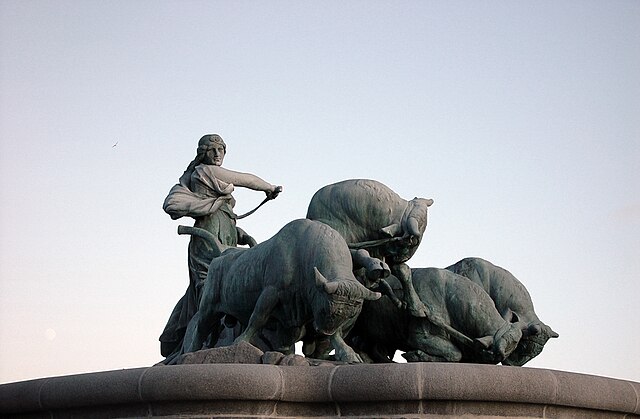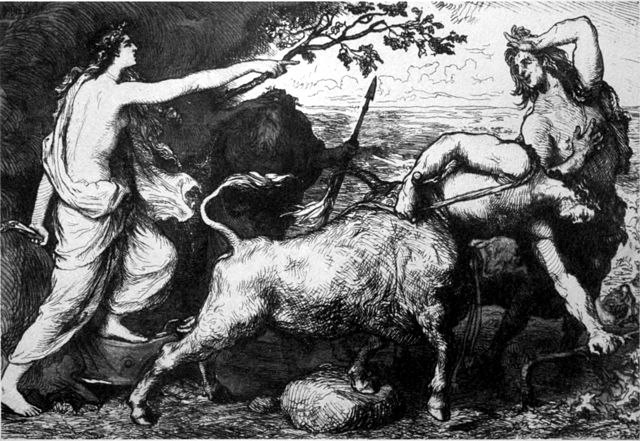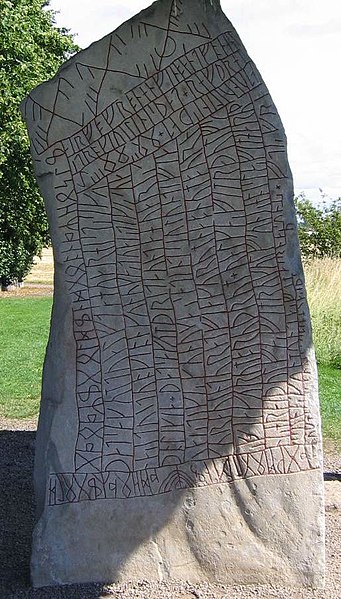In Norse mythology, Gefjon is a goddess associated with ploughing, the Danish island of Zealand, the legendary Swedish king Gylfi, the legendary Danish king Skjöldr, foreknowledge, her oxen children, and virginity. Gefjon is attested in the Poetic Edda, compiled in the 13th century from earlier traditional sources; the Prose Edda and Heimskringla, written in the 13th century by Snorri Sturluson; in the works of skalds; and appears as a gloss for various Greco-Roman goddesses in some Old Norse translations of Latin works.
Detail of the Gefion Fountain (1908) by Anders Bundgaard
Lokasenna (1895) by Lorenz Frølich
Gefjun Plows Zealand with her Oxen (1882) by Karl Ehrenberg
Gefion and King Gylphi (1906) by Lorenz Frølich
Norse, Nordic, or Scandinavian mythology, is the body of myths belonging to the North Germanic peoples, stemming from Old Norse religion and continuing after the Christianization of Scandinavia, and into the Nordic folklore of the modern period. The northernmost extension of Germanic mythology and stemming from Proto-Germanic folklore, Norse mythology consists of tales of various deities, beings, and heroes derived from numerous sources from both before and after the pagan period, including medieval manuscripts, archaeological representations, and folk tradition. The source texts mention numerous gods such as the thunder-god Thor, the raven-flanked god Odin, the goddess Freyja, and numerous other deities.
The Tjängvide image stone with illustrations from Norse mythology
The god Loki, son of Fárbauti and Laufey
The Rök runestone (Ög 136), located in Rök, Sweden, features a Younger Futhark runic inscription that makes various references to Norse mythology.
Title page of a late manuscript of the Prose Edda written by Snorri Sturluson (13th century), showing the Ancient Norse Gods Odin, Heimdallr, Sleipnir, and other figures from Norse mythology








